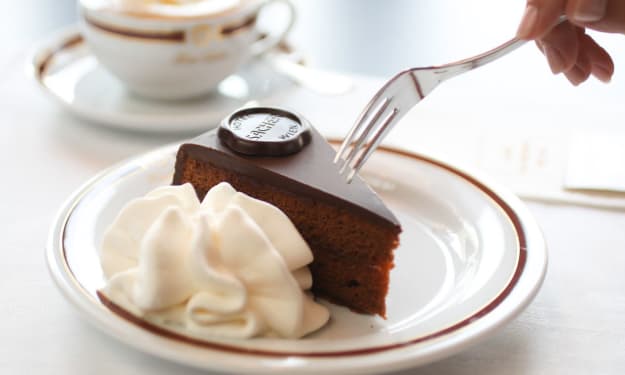Bridge: a Bridge to Rich Retirement
Autonomy, Connectedness, and Purpose

What a great subject this challenge is! Full disclosure: I am a co-founder of Seniors Junction (www.seniorsjunction.com), a startup that advocates, researches, and delivers serious or purposeful leisure activities to prevent seniors isolation and to help those of us who are seniors to live richer, more rewarding, autonomous lives of purpose and social connectedness. As a retired widower, I am (or was) at high risk for social isolation and the consequences of it, known to be more dangerous to health than obesity or smoking. Add grief to the mix and look out! I’m a good example--after my wife died I had chronically high blood sugar and three major heart attacks, the third one almost fatal.
In the same year I retired from a challenging, intensive, fulfilling career as a university professor, and cancer ended my close, passionate marriage of 39 years. The funeral director went out of his way to give me a piece of advice. Most men, he said, do not have good social networks and when they are alone they just stay home. My dear friend and now business partner pointed out, after my trio of heart attacks, that I was not going about things in the right way.
Now my way of expanding my social network has been to pursue leisure activities with others, not so much competitively (I have always gotten satisfaction from doing things well and with the proper techniques, but never been very competitive, if I’ve expressed that difference well) but purposefully. And my example here is bridge, by no means the only valuable activity (I engage in several, and we have interviewed two lovely ladies in their nineties who have thrived during the pandemic by creative scrap-booking together--in their opinion activities are the key to well-being) but a very good one.
I learned the game as a child and loved to play with my family, picking up new tactics each time I played. Right from the start my favorite aunt taught me to bid carefully, thoughtfully, and deliberately. My reward was being allowed to stay up with the adults on bridge nights! The bidding is the best part of the game, figuring out what you and your partner have and what you could play, communicating as precisely as possible within the limits of naming a suit and a number of tricks.
Playing is satisfying too, especially out-foxing the other side, guessing who holds which cards, and getting through sticky situations. I always think that, whatever cards I hold, maybe I could take one more trick so I occasionally (more than occasionally?) stretch my bid a bit, just a bit (ask my patient partner!). My mother was over-cautious, sometimes to my frustration, my father adventurous. I won't say over-adventurous because I play a lot like him. My partner, an excellent player and very observant, is of the (correct) opinion that I never was a ‘wallflower’ or a ‘shrinking violet.’ I played until university, then very little for the next forty years.
It did not surprise me that the bidding has changed somewhat. My partner, calendrically a bit older than me, but just as young at heart as I am, is an excellent player. He has lent me books to get me up to speed and I am getting a lot of enjoyment out of that. Bridge for me has all the fun and satisfaction of a familiar activity and the adventure of a new activity, and the circle of people I play with is growing rapidly.
I love to play. In an afternoon or evening of bridge one might play with or against eight or more different players. Some have remarked, as did Somerset Maugham, the author of The Razor's Edge, who also wrote the introduction to one of Goren's books on bidding, that one can play and enjoy bridge until one drops and always find something new. The winningest player at my club is 96 and shows no signs of slowing down (I think I have done well in 8-man duplicate bridge if I finish 3rd--there is a 92-year old who usually finishes second--whoops! I said I’m not competitive, didn’t I? ;).
For social and emotional health bridge offers the trifecta, and there is good theory and solid research behind this including that of our company: 1) Autonomy--the skill of independently counting the points in your hand and bidding and playing it properly; (2) Social relatedness--communicating with others, enjoying playing with them, coming back again and again (3) Purpose--learning and improving, not minding so much if your contract goes down in flames (mine often does--see above about my father’s style), but bidding and playing your best.
It is for me as a researcher on aging well and a teacher of classes for leisure (another new purpose) the combination of skill and social connectedness that makes the game so valuable. I tried to interest a widower friend, a brilliant research scientist who has been isolated and is now suffering cognitive decline, one of the consequences, but he refused every time, stubbornly insisting that his hobby of sitting alone in his room enlarging his family tree was mentally stimulating enough to keep his mind active. I tried to explain that while he was right that genealogy is intellectually demanding, that is only one half of the equation; communicating with and relating to people is the other half, and many of us would say it is the bigger half. I hope he will change course, and will also seek the help he needs.
I know that not everyone is retired, but everyone’s time will come. I am very glad that most are not widowed, but the overwhelming likelihood is that one member of a couple will die before the other and someone will be left to manage. In my experience most people plan well for the financial aspects of senior life. Most people, including my friend the research scientist, are aware of the need for physical exercise. Many wear fitness watches that count their steps, and they dutifully walk thousands of steps each day. My point is that most people take care of the tangible issues. Not as many are ready for the intangible questions.
Life does not stop with retirement, and indeed the idea is that we are supposed to be able to enjoy this time. That means leisure. There is nothing wrong with enjoying oneself after working for decades, and this cannot be done by sitting still--we need activities. Must our personal growth stop? Of course not, hence the advantages of purposeful leisure.
And is bridge not like the serious leisure game of life? We must play the hand we are dealt (we hold no other cards). We bid and play our own hand, but with partners, and with others at the table, with whom we aim to have an enjoyable time, fellowship being the nectar of life. In the end we all need autonomy, connectedness, and purpose. Retirement planning takes income and expenses into account, but what about the rest of life?
I am an advocate of these activities because I see the positive effects in those who engage in them. And I certainly see the effects in myself. Our lives did not end with retirement or widowhood, although they could be greatly diminished if we do not make efforts to forestall that. I want to enjoy my leisure. One of the next courses I will soon offer through Seniors Junction is 8 weeks to better bridge bidding and playing. My question: Who's up for a game of bridge?
About the Creator
Paul Merkley
Co-Founder of Seniors Junction, a social enterprise working to prevent seniors isolation. Emeritus professor, U. of Ottawa. Fellow of the Royal Society of Canada. Founder of Tower of Sound Waves. Author of Fiction.





Comments
There are no comments for this story
Be the first to respond and start the conversation.